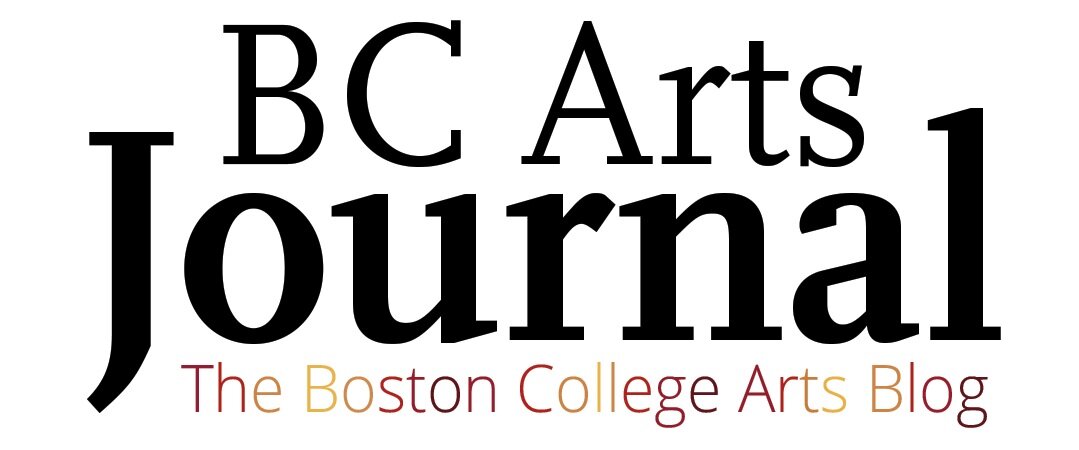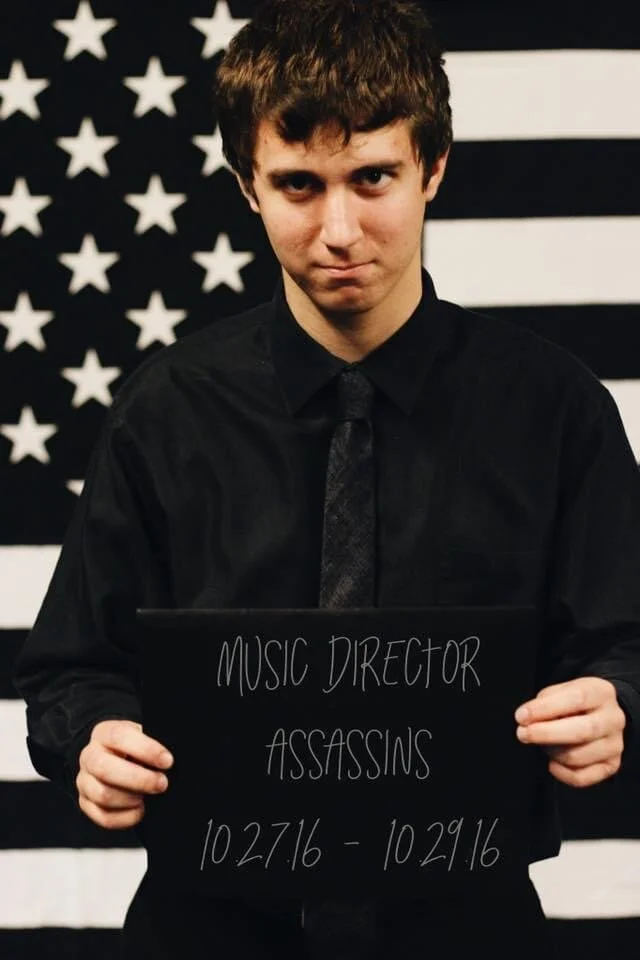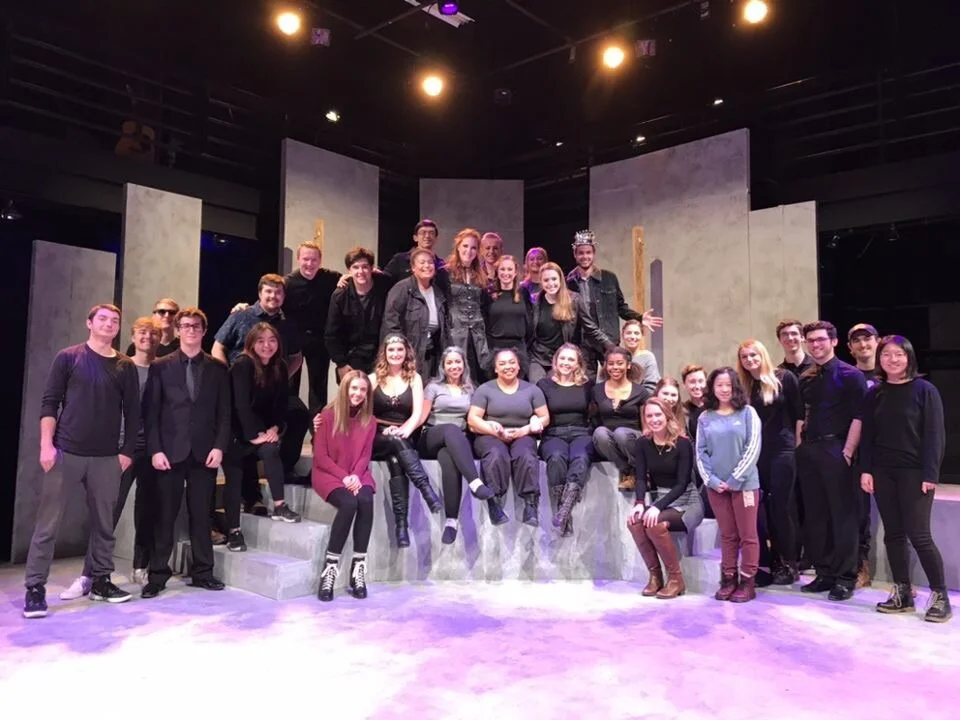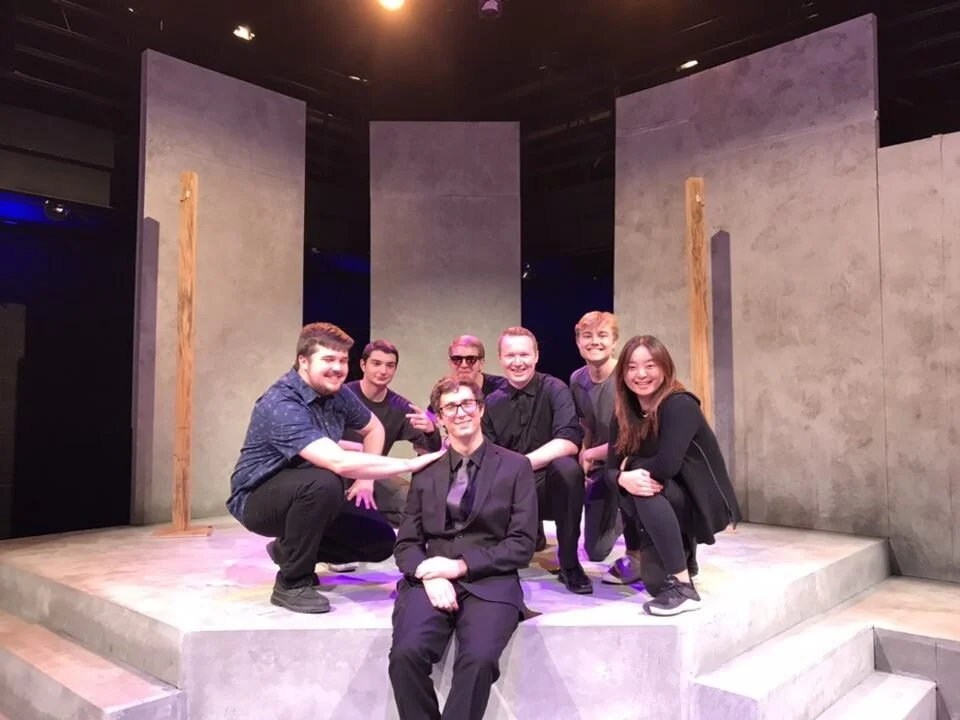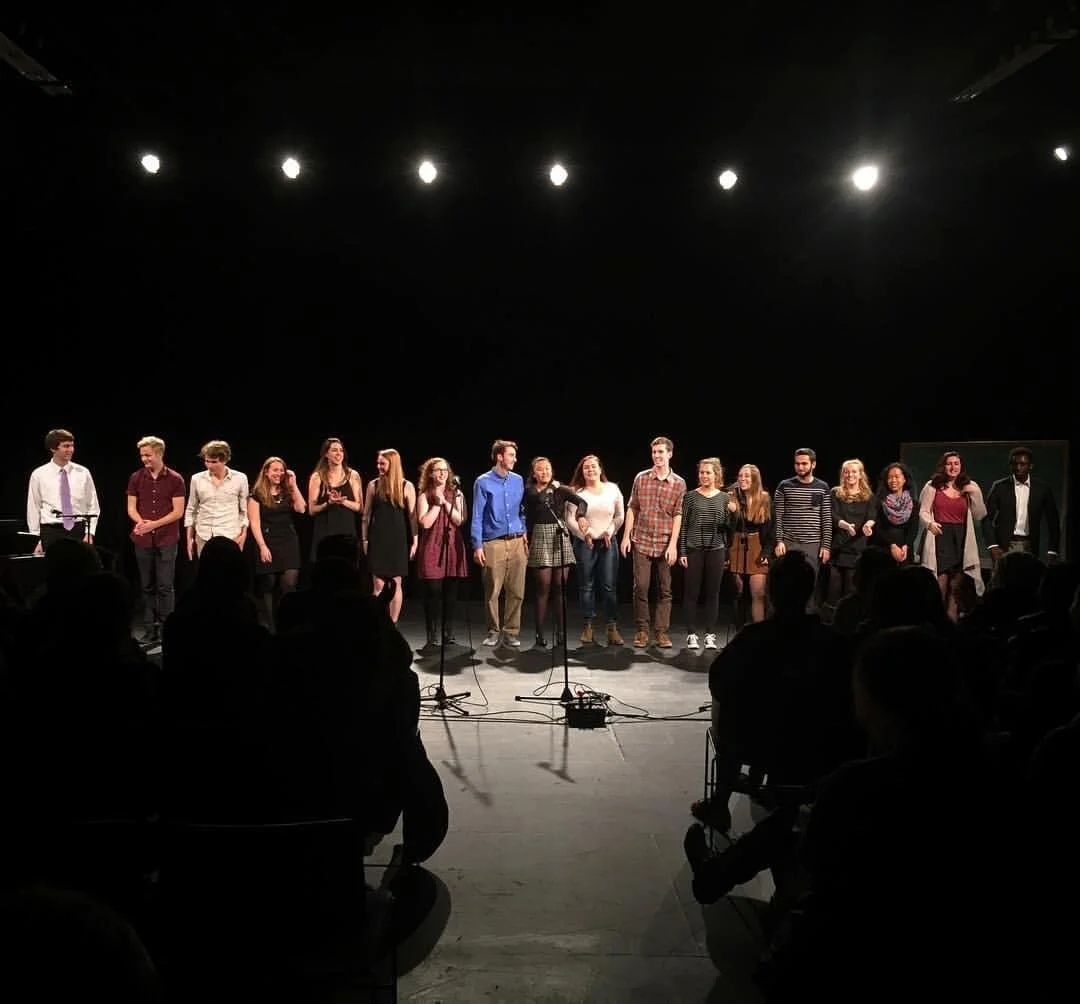2020 Arts Award: Conor Ancharski
by Ally Lardner ‘21
Senior Conor Ancharski reflects on his four years at Boston College, and how his studies as a Music major have influenced his passion for music direction and theatre.
Conor Ancharski ’20
Major: Music and Philosophy
University Chorale
Chamber Singers
Marching Band: Trombone (2016–2018)
Theatre Department Production: Evita, Cast Member
Musical Theatre Wing, Music Director
Music Director: Little Shop of Horrors: In Concert!, Pippin, High School Musical: In Concert!, The Addams Family, Mamma Mia: In Concert!, and Assassins
How have you been involved in the arts at BC?
Conor as the Music Director of Assassins his first semester at Boston College.
Freshman and sophomore year, I played trombone in the Marching Band. And my first semester of freshman year, I music directed Assassins (Contemporary Theatre).
Your first semester?
Yeah, it was kind of a crazy thing, I got thrown in right away! So I did that, and the next semester I was in the ensemble for Evita. That was the first time I was onstage.
Sophomore year I music directed Mamma Mia: In Concert (Musical Theatre Wing), and The Addams Family (Dramatics Society). Junior year, I did High School Musical: In Concert (Musical Theatre Wing), and then senior year I music directed Pippin (Contemporary Theatre and Dramatics Society) and Little Shop of Horrors: In Concert (Musical Theatre Wing).
I’ve been in the Chorale and I also joined the Chamber Singers senior year. I did a piano trio my freshman year, and I’ve been taking lessons with Lindsay Albert. I’ve also subbed in as an accompanist for a couple things. And I’ve played a bunch of cabarets for MT Wing, of course.
What has been your most meaningful arts experience?
That’s a tough one! Each one has been meaningful in its own way. But I’d say the last two musicals, Little Shop, and especially Pippin, were the culmination of everything that i’ve learned. All of the mistakes that I had made in productions before, everything that I learned about what could go wrong. . . Pippin was the show where things finally started to make sense, though of course nothing’s perfect. It was a great show. Little Shop was when I learned how to really work with the score in a fun way. There were so many moments where I had a group of people who didn’t necessarily have the vocal ranges that would fit with what was written in the score, and I took what I learned in my music theory classes about arranging to rewrite it. Not that I was recomposing, but I learned to take the harmonies and make it work with who I had.
How have these experiences informed your next steps after graduation?
I do plan to go into music direction, and I feel that everything I've done at BC has kind of built up to that. Even the things that don’t seem to directly apply, like the work I've done with my music major, like studying music history — it’s all tied in with what I want to do.
Philosophy started as just a minor, but I realized recently I had enough time to make it work as a major as well. It’s definitely not my main thing, but I think it all connects.
Most philosophers were artists in their own way!
A lot of music is written about philosophy. I wouldn't proclaim to be an expert in any way, but I find it interesting. I feel like there’s definitely thematic parallels you can draw between philosophical and musical movements.
What advice would you share with underclassmen about getting involved in the arts?
What would I say to freshmen. . . Push yourself to be uncomfortable, but don’t sacrifice your well-being. The reason why I dropped Marching Band after sophomore year was in response to the semester before when I had put too many things on my plate. But with Pippin, for example, I could really devote my best work to it, because it was by-and-large the only project that I did that semester.
It’s good to take risks and find many opportunities, but choose where you want to be.
If you are a singer, there is no better skill to have than to know how to play the piano. Even a basic knowledge of theory and the ability to play your vocal lines on the instrument will help you immensely. Along the same lines, if you find yourself in collaborative art (which is pretty much all art), try to put yourself in the position of your collaborator. For me, this means singing. For the actor, this might mean directing, for the director, this might mean acting. You don't have to go all-out in it, but it will help you a lot to gain that perspective.
There is a quote from Stephen King that goes, "If you don't have time to read, you don't have the time (or the tools) to write." I believe this applies to every art form: in order to create content you must take in as much as possible. For me, this has taken form in listening to at least one new album every day, and seeing as many musicals as possible, for you, it may take any other sort of form. But it’s crucial. And go out of your comfort zone when consuming media. If you don't like a genre, listen to it, and listen to the words of people who like it.
You can learn things about your craft in the most unlikely of places.
Nothing will ever be perfect. Learn to embrace your mistakes, have fun with them. It's important to get the right notes, but it's also important to make your wrong notes sound right. Studying and playing jazz is a great way to do this musically. Things will go wrong, and people will let you down. Don't take it out on them (you never know what their situation is), and don't take it out on yourself. Just focus on what you have. It's normal to feel like you aren't prepared, and the imposter syndrome is always a real threat.
You are where you are for a reason, and if you feel unprepared that often means that you are learning. A good thing.
Who are your mentors and inspirations in the arts?
All of my music professors, definitely. If I had to name one person in particular, I’ve been taking lessons with Lindsay Albert for so long, and she’s the person who’s been there for me through all the musical theatre.
The wonderful directors I've worked with: Meg Ellis (MCAS ’20), Devyn Itula ’22, Jenna Corcoran ’17. The people in MT Wing, certainly! I’ve worked with a lot of wonderful people.
Conor music directing a cabaret event for the Musical Theatre Wing.
